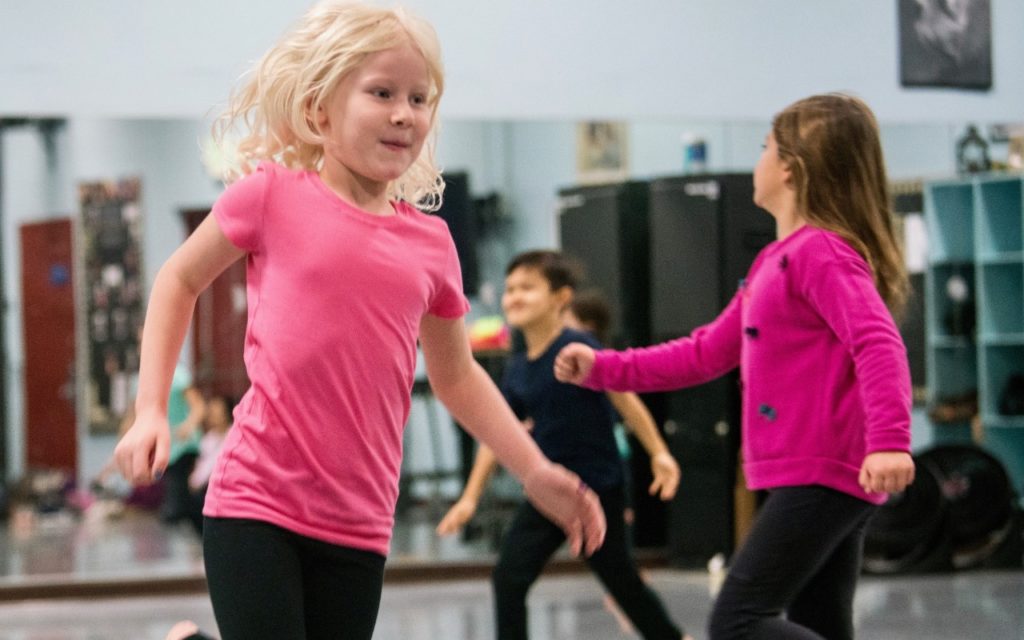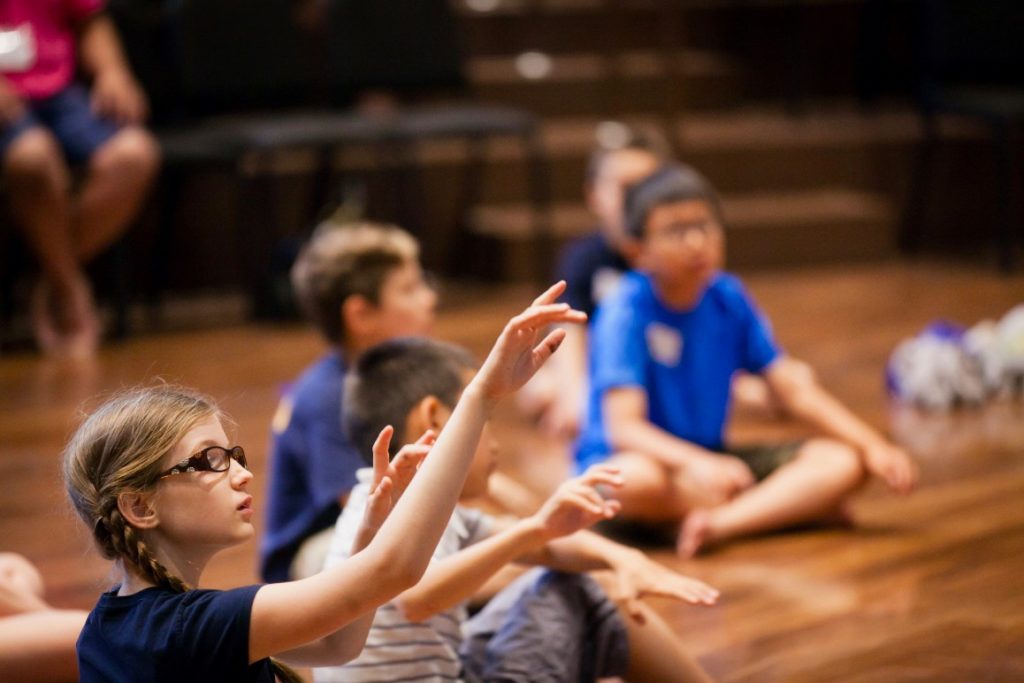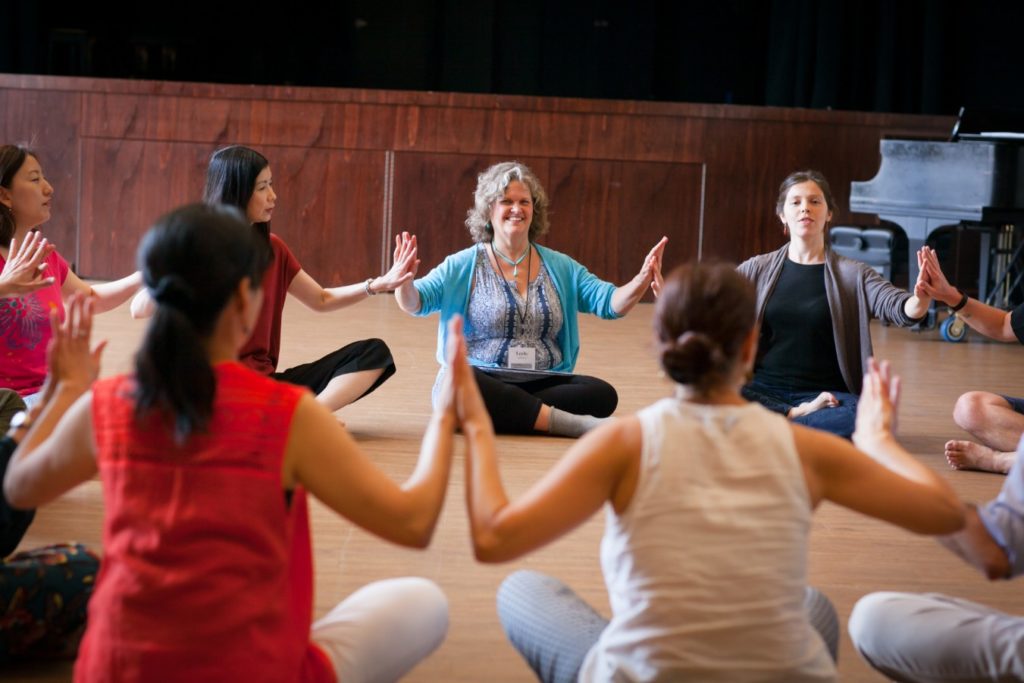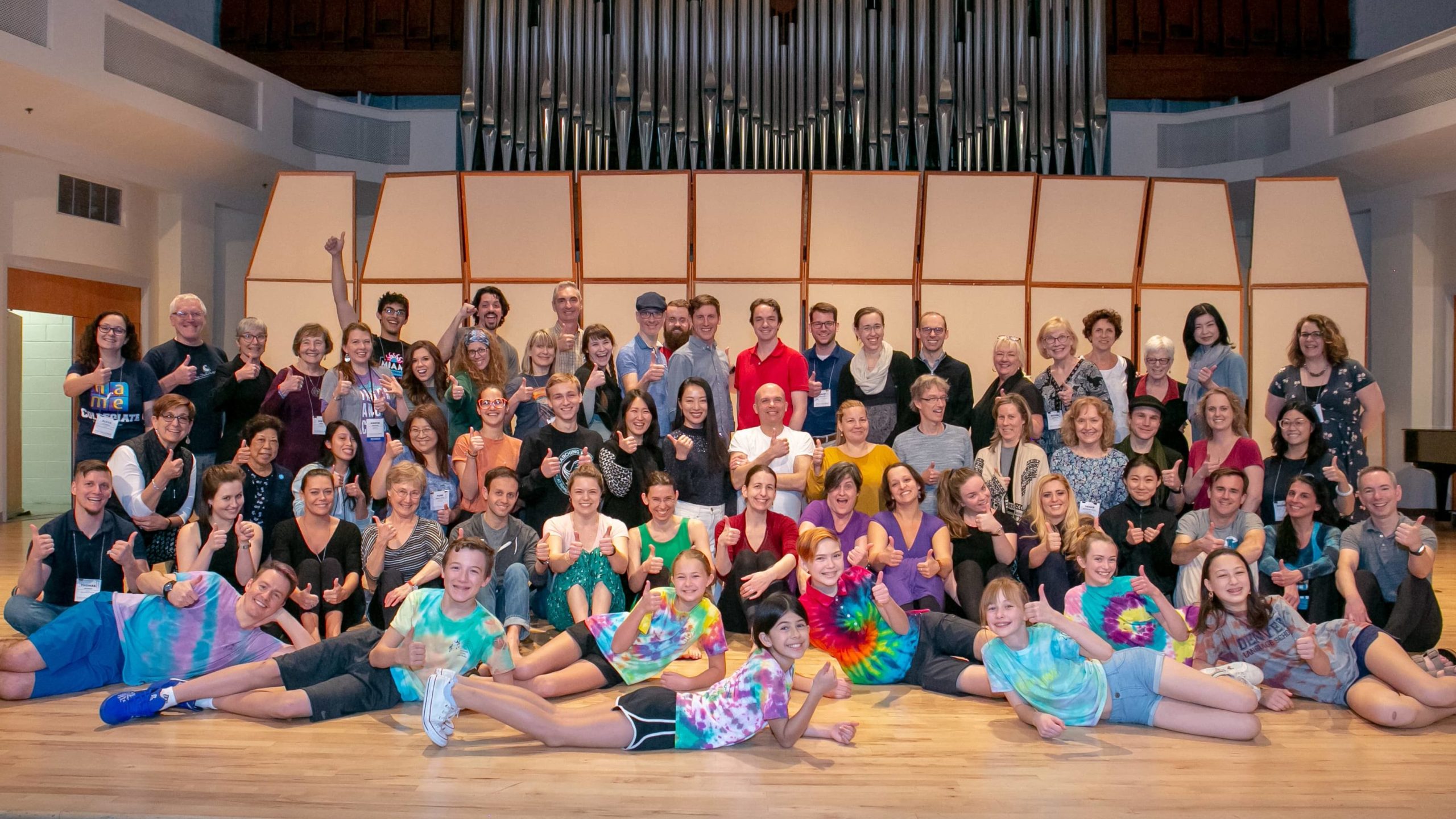
Introducing: “Dalcroze Education for Youth”
Designed for New Dalcroze Teachers
Have you ever taught a Dalcroze class to children ages 4-6? Or perhaps you are working on the pedagogy requirements towards Dalcroze certification and plan to do your practice teaching with this age group? Maybe you are thinking of creating a new course for 4-6 year olds in the near future?

What can I expect?
When designing a Dalcroze course for 4-6 year olds, many newly-certified teachers have questions about what elements to include, for example: the musical goals, movement goals, and specific theory-follows-practice questions to follow up an activity.
Additionally, new teachers may struggle with knowing what benchmarks your 4-6 year old students should be able to reach, especially since the goalposts may change depending on your student population.
It can also be challenging to discover on one’s own the physical expectations of 4-6 year olds in a Dalcroze setting…can they march to the beat? Should they skip or gallop in compound meter? Can they be expected to sing the Major pentascale in tune? Which keys fits their vocal range the best?

Unfortunately…
There are resources available on this topic from previous Dalcrozians, although few are recent publications that reflect the current teaching climate. Some such writings come other continents, or other eras, even other centuries!
However:
Luckily for you, the Dalcroze Society of America’s Professional Development Committee—comprised of diplômés, diplôme candidates, and teacher-training licentiates—has formed a subcommittee to answer these questions. The newly-formed “Dalcroze Education for Youth (DEY) Subcommittee” has been meeting for over a year now, analyzing the common Dalcroze goals for teaching music to children ages 4-6.
After much discussion of the common music and movement goals and expectations for 4-6 year olds based on our anecdotal teaching experience (we have decades of work with this age group between us!), as well as a literature review of previously-published works on this topic by former Dalcroze teachers from around the world, the DEY Subcommittee has decided to create a document for public dissemination on the teaching of 4-6 year olds, to be first distributed to the members of the Dalcroze Society of America.

“The Document”
Such a document does not yet exist in our country! While the final version is not yet ready for release, we can give some specifics about what it will include:
- a variety of lesson plans for 4-6 year olds from experienced Dalcroze teachers (expert being defined here as working with this age group for at least five years)
- suggestions for six-week sequences (including: seasonal themes, plastique-based sessions, solfège-centered classes, locomotor development, and more)
- suggestions for possible year-long sequences
- a list of the common movement goals (including locomotor movements) expected for this age group
- a list of the common music theory goals (including simple notation, meter, harmony, and more)

We need your help
Although this document is not yet complete, the DEY Subcommittee plans on completing and releasing it to the DSA membership as soon as possible. We would appreciate knowing your thoughts: is there anything specific you’d like to see included? Any questions you have about working with this age group? Maybe you are wondering why we even need a document like this?
Feedback that you’d like to send us (whether in the form of an email to editor@dalcrozeusa.org or as a comment on this blog) have the potential to help the greater Dalcroze community. This document is being created for you, the members of the Dalcroze Society of America. We hope it will be a useful resource for everyone, new teachers and veteran teachers alike!
We look forward to releasing our work soon.
Respectfully,
The Dalcroze Education for Youth Subcommittee
- Adriana Ausch-Simmel
- Katie Couch
- Jeremy Dittus
- Lauren Hodgson
- Leslie Purcell Upchurch
The DSA reflects the richness and diversity of the American community of practice, which includes Dalcroze-inspired teachers & artists, musicians & dancers, and actors & other professionals who have adapted the Dalcroze approach to their individual work. Let us know what Dalcroze means to you. Not a member? Join instantly online.
I am working in an organisation Bodh shikha saniti Jaipur Rajasthan who works for deprived children’s quality education .i am a music teacher educator impressed from dalcroze method and want to understand that to apply a quality music education .